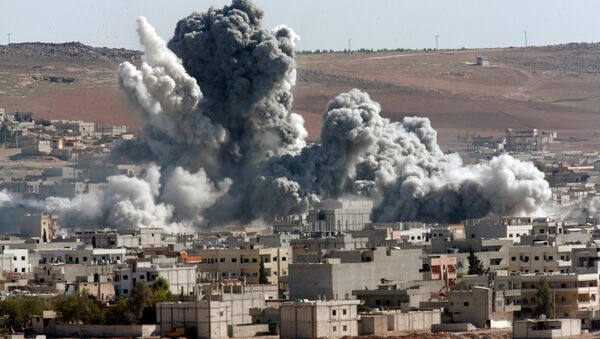The ongoing air campaign targeting Daesh fighters and equipment began in August 2014 in Iraq and spread to Syria a month later.
"We're in the business of killing terrorists and business is good," Air Force Secretary Deborah Lee James said in statement. "We need to replenish our munitions stock. Weapons take years to produce from the day the contract is assigned until they roll off the production line."
The Air Force carries out most of the bombing runs using a variety of warplanes, from single-prop Predator drones to huge B-1 bombers, USA Today reported.
"We're expending munitions faster than we can replenish them. B-1s have dropped bombs in record numbers. F-15Es are in the fight because they are able to employ a wide range of weapons and do so with great flexibility," said Air Force Chief of Staff General Mark Welsh in a statement.
"We need the funding in place to ensure we're prepared for the long fight. This is a critical need."
The Pentagon has ramped up its air attack on Daesh since the summer. In July and August, half of the warplanes returned to base without dropping weapons, Army Colonel Steve Warren, the military's spokesman in Baghdad, said this week. That figure rose to 60% by October and 65% by November, USA Today reported.
"We're attacking ISIL on numerous fronts," Warren said. "We've attacked their fighters in Syria and Iraq, we're hitting their ability to finance their illegal and despicable operations."
The bombing runs have depleted domestic depots, said Lieutenant Colonel Chris Karns, an Air Force spokesman. The Army has also shared some of its Hellfire missiles, the primary weapon on drones. In fiscal year 2015, Congress approved spending an additional $400 million for 4,000 Hellfire missiles, he said.
The shortage is at least in part self-inflicted, said Loren Thompson, a defense industry consultant and military analyst at the Lexington Institute.
"Congress has capped defense spending since 2012, and one place the Pentagon has tried to save money is on ammo and missiles," Thompson told USA Today.
"The US air war against ISIL isn't intense, so if missile supplies are getting low that indicates not enough were bought. There is always a temptation to skimp on purchases of ammunition and missiles in peacetime, but that can leave the military under-equipped when threats arise."



